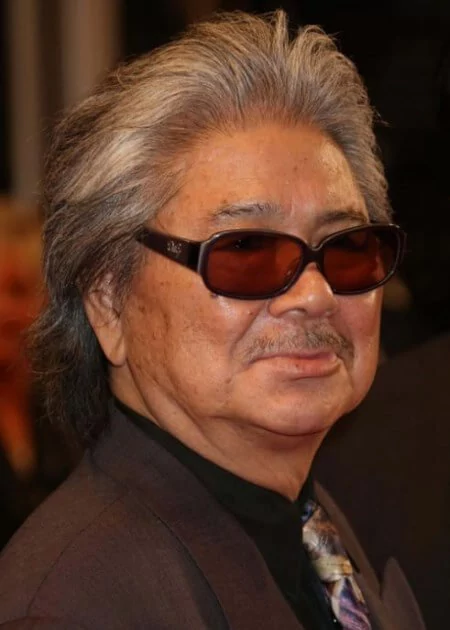
Prolific madman director who made low-budget erotic cinema his own, hijacking it as a playground for experimentation and injecting it with strong political ideals. One of the greatest classical directors out there, with an oeuvre spanning half a century.
Movies
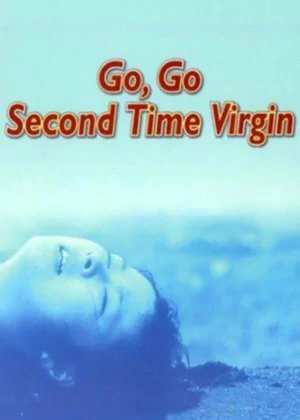
Koji Wakamatsu's masterpiece. If you want to breach his somewhat daunting oeuvre, this is no doubt one of the best places to start. The film mixes raw and gritty drama with a more poetic vibe, though an easy watch this is not. The stark black-and-white cinematography is fitting, the soundtrack is remarkable and the characters are intriguing yet mystifying. It's certainly not a film for anyone considering its crude handling of themes like rape and suicide, but if you can stomach it, you might just discover one of the most creative films of the 60s.
Cycling Chronicles: Landscapes the Boy Saw
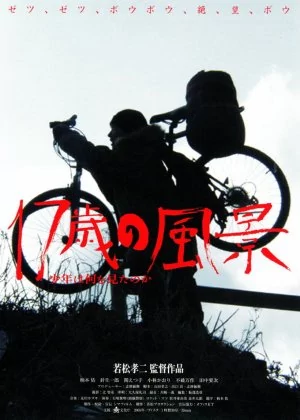
A film that slows you down for the course of its running time and leaves you with something to think about while looking at impressive imagery and striking you with an impressive soundtrack
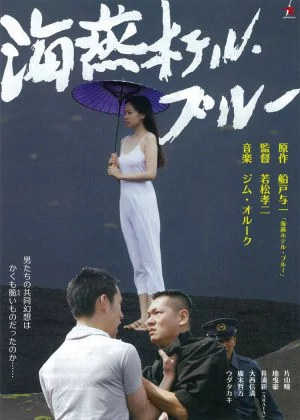
2012 was going to be a great year for Koji Wakamatsu. With three films released and already a fourth one on the way, he was on a roll. At the age of 76, that's quite a feat. Sadly it wasn't meant to be. On a walk home from a budget meeting Wakamatsu was hit by a cab and he would pass away soon after. A surprisingly tepid ending for an explosive director.
Read all
Kaien Hoteru - Buru (Petrel Hotel Blue) is one of the three films Wakamatsu managed to finish in 2012. It's a peculiar film, experimental but featuring an elaborate narrative and remarkably free from political propaganda. It would make a good companion piece to Landscapes the Boy Saw, though both films are still quite different from each other.
Kaien Hoteru - Buru starts off with a robbery gone wrong. When Yukio's friend Yoji doesn't show up to provide backup, Yukio is caught and is sentenced to a 7 year stay in prison. Upon his release, Yukio vows to take revenge on Yoji. He finds out his location and ends up on a small, barren island where Yoji is running a bar/hotel.
That's when things get strange. Even though there's a whole crime story slowly unravelling, the film is more interested in Rika's character, Yoji's wife. She doesn't really speak, she disappears into thin air from time to time and she transfixes every man she meets. She's the catalyst of just about everything that happens, but her exact role is never truly explained.
The film is obviously a low-budget affair, but the location is terrific and the camera does a great job capturing its alien atmosphere. The soundtrack too adds a very mysterious feel, making everything that much weirder. The only real downer is the cast. Go Jibiki (a late-Wakamatsu regular) is solid, but the rest of the actors fail to find the right vibe.
Still, Kaien Hoteru - Buru is worth a gamble, especially if you're already familiar with Wakamatsu's oeuvre. It's a moody, atmospheric and mysterious film, not the kind of thing you'd expect a 76 year old to make. It might have been easier to accept Wakamatsu's passing if he'd been making crap movies, on the other hand, at least he got productive again right before passing away.
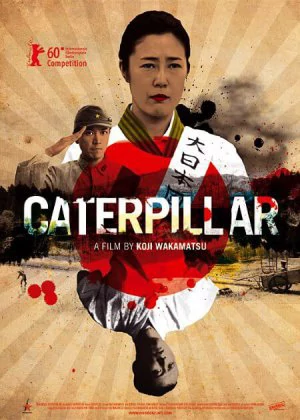
Wakamatsu does Japanese deformation horror, but his personal touches are still prevalent. It's better to see this film as a drama than a horror film, just to avoid confusion and to avoid attracting the wrong crowd. Prepare yourself for a pretty tough and relentless film, but one that comes with proper rewards for those who commit.
Read all
Kurokawa returns a decorated hero after having fought in the Sino-Japanese war. The only problem is that he has no more arms and legs, so he has to rely on his wife to take care of him. At first, she is committed to serving him well, but Kurokawa is demanding and as time passes, his wife finds it increasingly difficult to cope with his behavior.
Terajima is outstanding, Kawahara also does a heat job considering his limitations. The drama is solid, the political angles a little unnecessary, but there's no escaping them when watching a Wakamatsu film. It's a pretty unique take on a familiar subject and a cool film for a director who was nearing the end of his long career. Well-recommended.
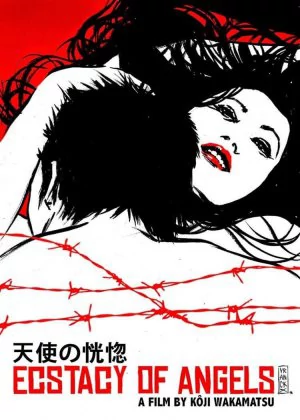
The (late) 60s were the prime years of Wakamatsu's career, but he was able to extend it for a short period during the early 70s. Ecstacy of the Angels will feel like a very familiar film to fans of his 60s work, but as this was only my second Wakamatsu film, it still felt very fresh and novel. The little dash of Nouvelle Vague just made it all the more interesting.
Read all
The Four Seasons Association is a group of activists who yearn for political change. When they are formed, the will to make a real difference is huge, but slowly they begin to lose motivation, which leads to pleasureless orgies and random violence. The association slowly starts to crumble, but some of them don't want to lose their newfound community.
The mix of black-and-white and color cinematography is interesting (and beautifully realized), the political elements are a tad overzealous but they add character, and the brutal finale is vintage Wakamatsu. It's certainly not an easy watch, then again, this was never an easy director. One of his better films, and a strong recommendation for people who love his early work.
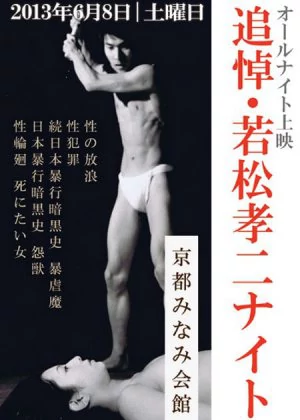
Another intriguing Wakamatsu. The late 60s/early 70s was a strong period for Wakamatsu and this film falls bang in the middle. His usual traits are there (weird and complex characters, a mix of black-and-white and color cinematography, a limited runtime, and some rather shocking moments.
Read all
Two couples meet up with each other in a little countryside inn. The four are all suicidal and are willing to face their issues one last time before they decide to end their lives. The encounter is quite rough and emotions run wild. Some start to doubt their decision, while others come out more determined to go through with it.
I liked the black-and-white sequences better than the colored ones, but overall the film looks pretty good. The characters are quite rough and not the easiest to empathize with, but it does make them pretty intriguing. The short runtime is a blessing and the ending is pretty impactful. A challenging but rewarding film.
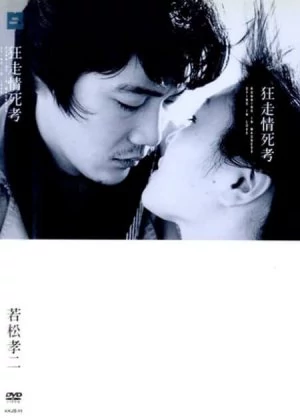
Another great Wakamatsu, not surprisingly a late 60s film. He really was on top of his game back then, not just quantity-wise, but also quality-wise. They're not the easiest films to get into, and you have to be able to see through (or appreciate) the shock and taboo, but once you get there, he was easily one of the best directors of his decade.
Read all
A man takes part in a violent political demonstration. Later on he gets into a fight with his brother, who works as a policeman. Things run out of hand and the policeman's wife kills her husband. She flees with her brother in law, but their relationship is unstable and the longer they remain together, the harder it becomes to leave their past behind.
Stylistically very interesting, with impressive cinematography and a pretty experimental score. The characters are difficult but intriguing, the ending is impressive and the runtime just perfect. Wakamatsu's films are not for everyone, but they take up a very unique place in cinematic history. People who want to get into his work will find a good entry point in Running in Madness, Dying in Love.
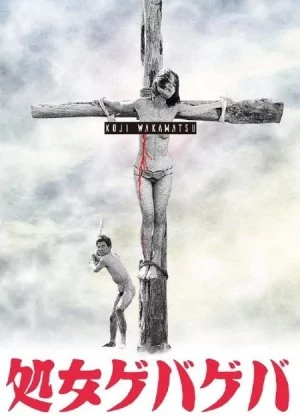
One of Wakamatsu's better films. 1969 was a good year for him. Not only did he direct a ton of films, many of them ending up becoming stand-outs in his oeuvre. Violent Virgin contains all the typical Wakamatsu traits and combines them into a surreal trip that bewilders, disgusts and intrigues in equal amounts.
Read all
Like many of his films, Violent Virgin is not an easy watch. It's a sort of prelude to the American rape/revenge films of the 70s (think I Spit On Your Grave or The Last House on the Left) that would give the horror genre a serious boost, only Wakamatsu's films are more skillfully and artfully executed.
Lush, high contrast black and white cinematography, perverse games, amoral behavior, rape, murder, it's all here. There isn't much in the way of plot, then again it's a pretty short film so there's really no time for it to get boring. Probably not the easiest introduction to Wakamatsu's work, but definitely one of the better films I've seen from him.
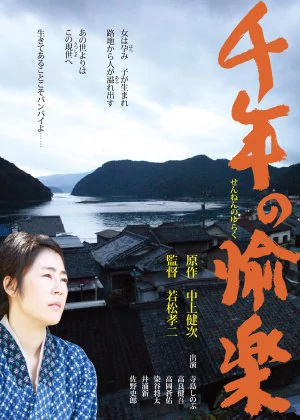
Wakamatsu didn't really go out with a bang, but this is a worthwhile final feature that at the very least shows he still had a couple of films left in him. An interesting family chronicle with a stellar performance by Shinobu Terajima. The film looks a bit too cheap and digital, it also lacks Wakamatsu's trademark grit, but otherwise it's a fine drama.
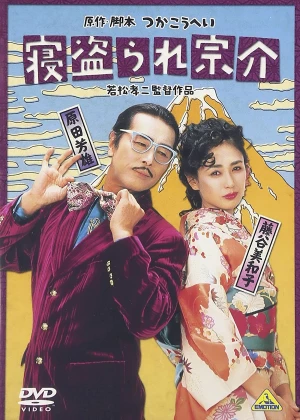
I wasn't prepared for this Wakamatsu. I know the 80s and 90s were a rough period for him and that he strayed from his original style to keep himself busy, but an art troupe dramedy is the last film I'd expected to see from him. I didn't recognize his hand in this film, but apart from that, it wasn't all that bad.
Read all
The rural/Hokkaido setting is lovely, the comedy is amusing and the pacing is relatively high. The plot and drama aren't too original though and the film runs a little long, but it never gets too dull or dire. Decent and amusing, not the most notable film I've seen, but the fact that Wakamatsu made it does add to the intrigue.
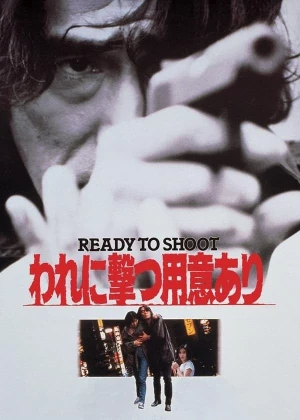
A peculiar Wakamatsu film. It felt more like a mid to late-90s crime flick (think Kurosawa or serious Miike), made by someone who was merely getting started in the industry. Not that the film makes any rookie mistakes, it's just that Wakamatsu has such a distinct and unique style, that it's quite hard to believe he could even direct a more straightforward genre film like this.
Read all
In many ways a simple and typical crime flick, with only a few minor hints towards Wakamatsu's cinematic legacy. Still, it's a nicely paced, well-acted, and properly stylized genre film that nicely ticks all the boxes. Not the kind of film you'd expect Wakamatsu to make, but that doesn't make it a bad film.
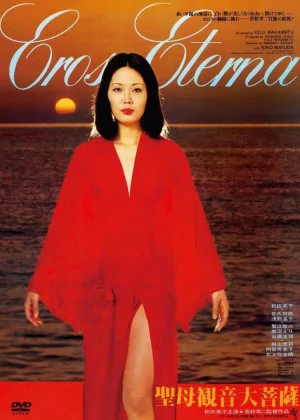
Interesting Wakamatsu. Not as overtly political as his most of his work, instead it features a clear yet slightly repetitive narrative that holds up well enough. The characters are blunt and enigmatic, the film looks nice and the pacing is on point.
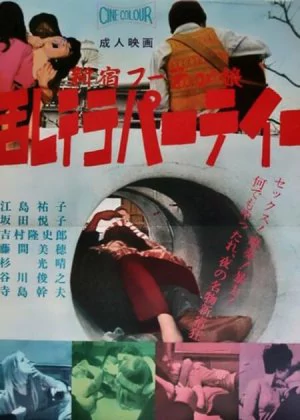
Not quite as mad as I'd hoped it would be, especially taking Wakamatsu's other films into account, but fans of the Japanese New Wave will find a film with plenty of charm. The first half is rather impressive, almost reminiscent of a milder Tetsuo, it's the second part that comes off a little half-hearted and drags the film down rather than giving it a fitting finale.
Read all
When a boy is murdered in Tokyo, his father is absolutely devastated. The man lives in a small rural town, but he is determined to find his son's killers, as the police are quite lax. He travels all the way to Tokyo and follows his trail to Shinjuku, a place teaming with rampant revolutionaries. He isn't quite prepared for what he'll find there but pushes on regardless.
Wakamatsu is known for not being afraid to push people's buttons, and the premise of this film gives him carte blanche. Maybe that's why the result was just a little disappointing, as the clash between 60's rural and urban Japan isn't quite as grotesque as I'd hoped it would be. Other than that, it's another Wakamatsu that once again highlights his unique style.
Dark Story of a Sex Crime: Phantom Killer
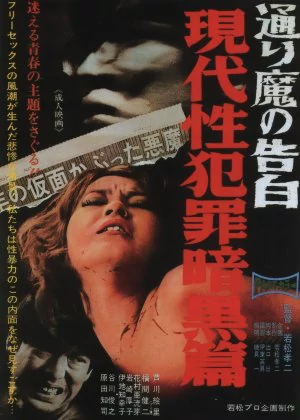
Part of Wakamatsu's ongoing fascination with sexual predators. It's an incel film avant la lettre, executed in true Wakamatsu style. Certainly not his most prominent or polished work, though fans of Wakamatsu won't be disappointed. Others should probably seek out his more famed work first.
Read all
Wakamatsu offers another glimpse into the mind of a very troubled soul. It's certainly not a pleasant film, let alone a titillating one, so if that's what you're after you can better skip this one altogether. If on the other hand you like a stylized and frank descent into the rotten mind of a violent pervert, Wakamatsu has you covered.
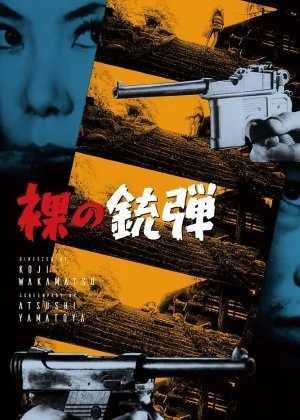
The number of films Wakamatsu made during the 60s feels endless. Though his style is quite consistent, the quality of these films is a bit hit-and-miss, depending on their level of experimentation, political focus and no doubt the mood of the day. In '69 alone Wakamatsu made 13 films, so having an off-day probably wasn't even an option for him.
Read all
Compared to his other films, Naked Bullet is a rather straightforward genre flick. While you get your fair share of vintage Wakamatsu (i.e. rape, crime elements and alternating sequences shot in black and white vs color), the overall tone of the film is a lot lighter, mostly playing like a funky, sometimes even comedic gangster film.
It's a somewhat surprising departure from most other Wakamatsu films I've seen so far, but when you're making so many films each year it's really no surprise you eventually end up trying something different. Wakamatsu handles himself pretty well too, the film looks stylish, sports some memorable scenes and offers some good genre fun.
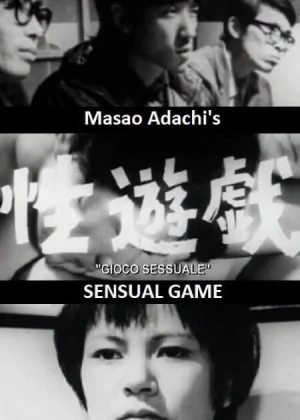
Another '69 Wakamatsu, this time together with Adachi. Somehow it's fitting this turned d out to be one of his best and most productive years, seeing how so many of his films deal (rather explicitly) with sexual themes. This isn't one of his best films, but if you love New Wave Wakamatsu then you really can't go wrong with Sexual Play, as it has all of his trademark elements.
Read all
A university girl is an adamant activist. One night she is raped by three men, but in a strange turn of events one of the men falls in love with her and confesses his feelings to her. The girl isn't too fazed by his story and in return, she asks him to become part of an experiment she has in mind, hoping to find the true meaning of radicalization.
Wakamatsu's fascination with rebellion and activism is on full display here. The switches between black-and-white and color cinematography are present, as is the jazzy score. It's just a little less polished than his more recognized work. These films also get a little repetitive, so don't watch them too closely together. Other than that, this is another wild Wakamatsu ride.
Violence without a Cause
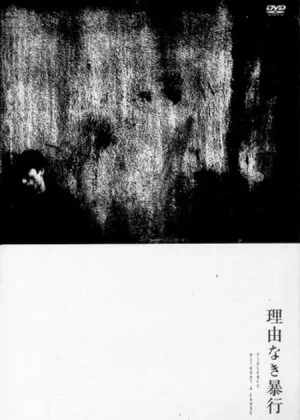
One of the 7 films Wakamatsu directed in '69. It's not the best one, if you make that many films in a single year some are bound to be a bit less polished than others, but it's still a pretty intriguing and relentless film with Wakamatsu's signature style plastered all over it. That's the benefit of having a unique point of view, it's something to fall back on.
Read all
Three kids have moved to Tokyo to study. They come from up north and they're not used to the city life. They are poor and don't have much success with the ladies and they don't feel like they fit in. Slowly they begin to lose touch with society. In an act of desperation, they rape a girl, which hurls them on a dangerous path they won't be able to return from.
Wakamatsu's favorite themes are present, the soundtrack feels familiar, the performances are relatively natural (for their time) and the stark black-and-white cinematography helps to add a bit of extra flair. If you're a fan of Wakamatsu's films this is an easy recommendation, but it's not a film that will win him any new fans.
Dark Story of a Japanese Rapist
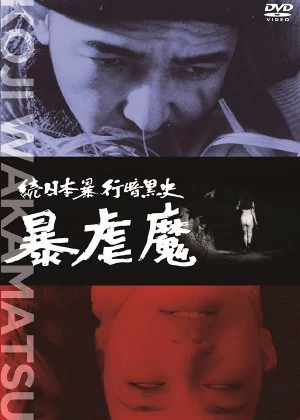
If there ever was a descriptive title for a film, it must've been Dark Story of a Japanese Rapist. You get exactly what the title promises, and with Koji Wakamatsu behind the camera you can rest assured it isn't just straight-forward horror or simple titillation. This was quite the effective drama.
Read all
The main character of this film may be a rapist, he's also an extremely tragic figure. That's not going to be a very popular take/angle, but there's definitely some merit in telling the story this way. While his victims remain empty shells for the most part, Wakamatsu takes his time to paint a strong picture of the perpetrator.
No colors this time around, apart from a handful of monochrome shots. The stark black and white cinematography is fitting though and weighs on the film. The soundtrack is fine too, the runtime perfect and the finale very fitting. A good film from Wakamatsu, but make sure you come prepared.
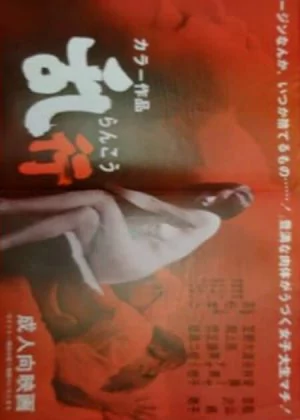
Fine Wakamatsu. Less political and psychologic than some of his more famous ones, though his usual trademark elements are still present in some way or another. Fun, short and intriguing hitman film, nice shots and a decent score make for a film that is quite unlike other films from the 60s.
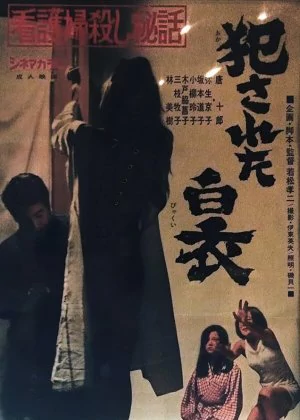
Wakamatsu working up to a crescendo. If you're familiar with his late 60s work you'll know what to expect. All his familiar elements are present, it's just not quite as polished compared to his more illustrious work. Don't let that stop you from watching Violated Angels, as this is yet another short and punchy little treat from one of Japan's crudest 60s talents.
Read all
A young and frustrated man has lost his will to conform to society's norms. Nobody cares to listen to him, so he plans an act of rebellion, hoping that will draw people's attention. He breaks into a nurses' dorm and plans to wreak havoc on every one that is present. The nurses try to escape, but the man is hellbent on making his statement.
As you probably understand, this is not a very pleasant watch. Then again, that's not what you sit down for when you put on a Wakamatsu film. Though quite shocking and short, some scenes do take up a bit too much time. The premise is very thin and Wakamatsu fails to keep it interesting for the full runtime, but there's enough here to give the film a fair shot.
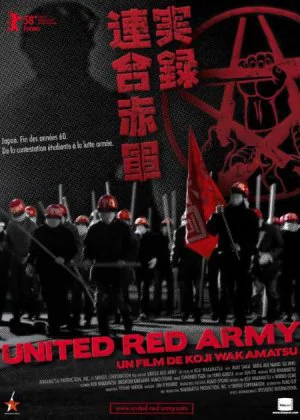
Vintage Wakamatsu. During his prime days, he made many movies about the revolutionaries, this 3-hour-long drama feels like Wakamatsu coming to terms with that period one last time. The project might've been a bit too personal (i.e. it could've used some editing), but people who know what Wakamatsu is about will recognize this as a pivotal work in his oeuvre.
Read all
After the idealism of the 60, the reality sets back in during the early 70s. Not everyone is willing to let their revolutionary ideals go, and so a small group of hardened idealists remains, fighting the regime. Five radical students flee to the Asano mountain and ready themselves for a tough battle with the police.
The documentary-like approach isn't the most successful as the combination with the traditional drama feels a tad awkward. The runtime is also a bit of an issue, with the film starting to lag after the first hour. I'm happy for Wakamatsu that he was able to make this film, but it could've used some polish.
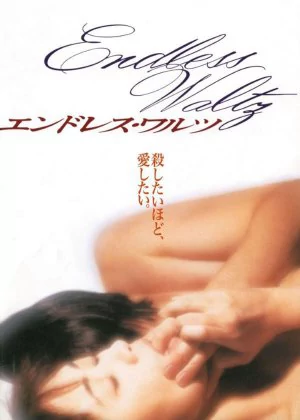
Wakamatsu in survival mode. He was a mad director in the 60s/early 70s, he had a nice post-2000 comeback, but all he did in between feels a little troubled and unsure. Endless Waltz is a film with potential, a drama where Wakamatsu's hand could've made a bigger difference, but in the end, it's mostly just oeuvre filler.
Read all
Suzuki is a popular writer. When her husband passes away, her publisher asks her to write his memoirs. He was a gifted jazz musician, but a lone soul who held his own beliefs and never felt truly understood. Their relationship was turbulent, so Suzuki isn't too sure she wants to revisit their past.
The drama is relatively simple, and the outcome is rather predictable, but the flashback structure adds some complexity. With Wakamatsu behind the camera, don't expect a soft-voiced drama. Things get pretty rough between the two protagonists, but it's nothing like his earlier work. Not a bad film, but not a very memorable one either.
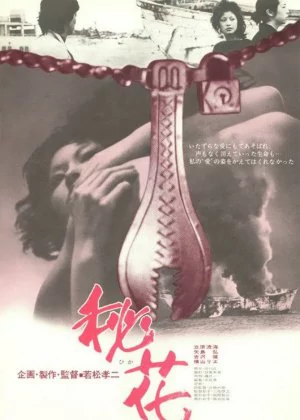
Not Koji Wakamatsu's best, though there is some proper intrigue here. It's also not all that different from his previous films, but the short length and the pinku rulebook do get in the way of the drama. Still, if you like the late 60s/early 70s Wakamatsu films, this is definitely one to watch.
Read all
A couple wants to commit suicide. They rent a room in a little hotel by the seaside, where they plan on finishing the business. Once there, they notice a peculiar woman on the beach. She looks to be in mourning, and she returns to the beach every day. The man of the couple becomes intrigued by her.
The film starts off pretty well, the introduction is vintage Wakamatsu, but after that Secret Flower calms down. That's not necessarily a bad thing, the premise is interesting enough, but the film has trouble grounding the drama, not in the least because of the intermittent pinku scenes. Interesting, but not exactly good.
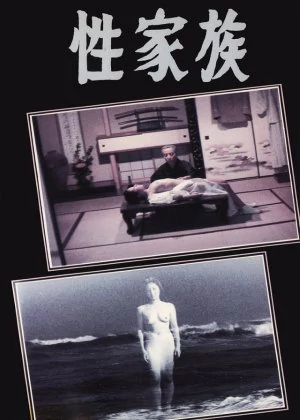
Wakamatsu coming off of his 60s high. The first 10 years in his career were a real whirlwind, with '69 as one of the most pivotal years in his oeuvre. After that Wakamatsu slowly started to swerve, finding it harder to keep the pace and to keep coming up with new variations on the same old theme.
Read all
The black and white cinematography is nice, though not quite as dashing as his better films. The plot and characters are a little meandering and the impact isn't quite as big as Wakamatsu clearly hoped it would be, but the film is short 'n sweet and even when it doesn't really stand out in Wakamatsu's oeuvre, it's still a pretty wicked and crazy film by any other standard.
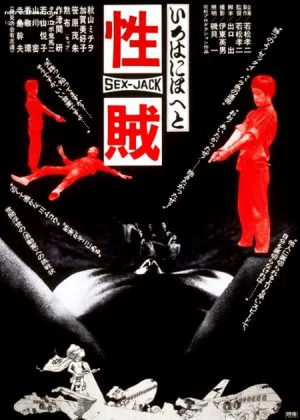
If you're familiar with Wakamatsu's 60s and early 70s work, this film will hold no surprises for you. A clan of young revolutionaries couped up in a small room, doing their best to revolt against the establishment. There are a few nice scenes, but it feels a little too familiar and indistinct compared to his better work.
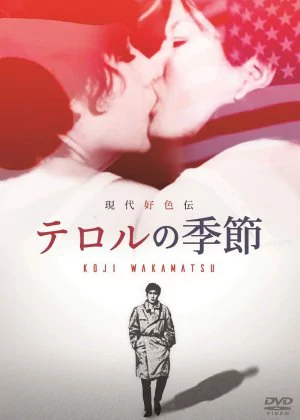
Typical late-60s Wakamatsu. Shot in black and white, a background of political revolution and free love. Wakamatsu made a gazillion of these films around that time. This one is very thin on plot though and 80 minutes is a tad long, but Wakamatsu fans probably won't be disappointed. Not his best, but still worth watching.
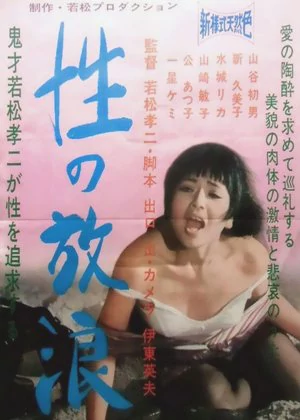
Wakamatsu's take on Imamura's classic. It's a shame I only found out afterwards, otherwise I would've prioritized Imamura's film before tackling this one. No doubt I'm missing some winks and nudges, though ultimately this is a pretty recognizable 60s Wakamatsu production, so people familiar with his work won't feel too lost regardless.
Read all
60's Wakamatsu means short runtimes, black & white cinematography, a hefty dose of erotica and some nouvelle vague-type experimentation (mostly with sound here). It makes for an amusing little film, though the lack of grit and edge is a little disappointing. Not bad, no doubt a little better for people familiar with Imamura's A Man Vanishes.
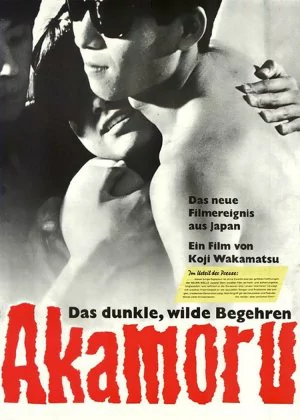
Early Wakamatsu, though with Wakamatsu that doesn't necessarily mean it's one of his first films. Merely three years into his career he already had 20+ films under his belt. Even so, it's obvious that Wakamatsu was still trying to find his style here. Many of his signature elements are already present, but the film still lacks what would set his more notable work apart.
Read all
Activism in other words. Some youthful revolt, a little nudity, stylish black and white cinematography with a splash of color and a jazzy soundtrack. But the film lacks that rawer edge that made Wakamatsu's best work stand out. Also, after 30+ Wakamatsu films, it does start to feel a bit repetitive, seeing the same subject handled over and over again. But for fans of his works, definitely worth seeking out.
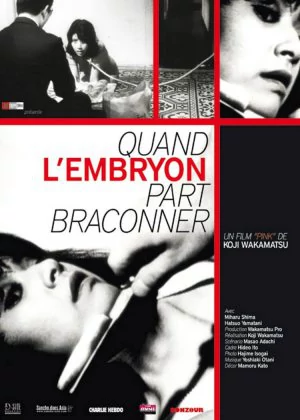
An early Wakamatsu, which is exactly what you can expect. He's clearly still developing his style here, the plot is extremely thin though thematically Wakamatsu draws a lot from it. Short, experimental and pretty edgy, at least for its time. Not as good as his late 60s work, but still worth a shot.
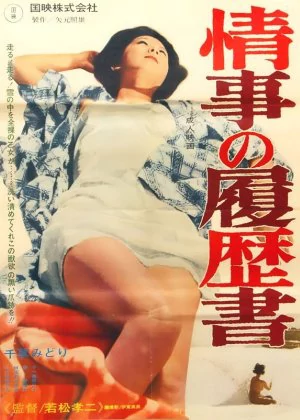
An early Wakamatsu. He made countless films during the 60s, so it's virtually impossible to keep track of them, but the better ones came at the end of the decade. While some of his early work is interesting, Wakamatsu was still exploring his signature style and even though you can already see glimpses of his genius, the films are often a bit uneven.
Read all
Wakamatsu's experimental side rears its head from time to time, mostly during the first half hour. After that, the film becomes more focused on the narrative, as we learn about the young girl's past through a series of flashbacks. It's a slightly disappointing evolution as the plot and characters aren't that interesting, but Wakamatsu fans will no doubt find something to like.
11.25: The Day He Chose His Own Fate
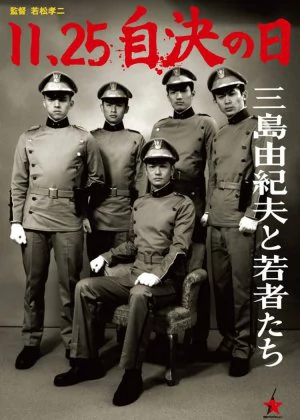
A more straightforward biography by Wakamatsu. He's known for his activist and politics-infused films, but where most of them tend to stand out because of their stylistic choices, 11.25 is a more basic and generic attempt to have a look at the life of a notable figure who took his own life to make a point.
Read all
Mishima is a writer with a mission. He breaks into the Ministry of Defense with four like-minded followers, takes the commander hostage, and finds his way to the balcony, where he begins his speech. When he notices that people are making fun of him, he commits seppuku in front of them.
It's an intriguing setup alright, but Wakamatsu's portrayal is rather basic. The film is pretty long and is laden with political speech, performances are decent but none stand out. The speech itself is pretty impressive, but it's a case of too little, too late. Young Wakamatsu would've made a better film out of this.
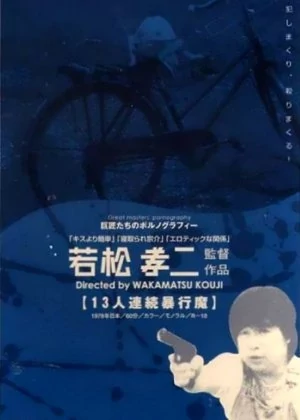
Wakamatsu has a reputation for making divisive and unflinching films, but this one offers a whole new level of nihilism. The title says it all really, the film follows a serial rapist on his murderous rampage. He wanders around, talks to random women, isolates them, rapes them and kills them.
Read all
And that's pretty much it. Little to no context is given to explain his actions, his victims remain completely unknown to the audience, all we get to see is the continuous torture, shot in a very detached and matter-of-fact way. It's not a very pleasant film to watch, neither is it very titillating, but if you like dark and relentless films, is it quite impressive.
The presentation is pretty cheap though. Wakamatsu's camera merely registers, there's little in the way of a soundtrack and the actors aren't exactly A-grade material either. It's clearly a film made on the cheap, but it does get its message across. An interesting watch for Wakamatsu fans, but it's pretty hard to recommend.
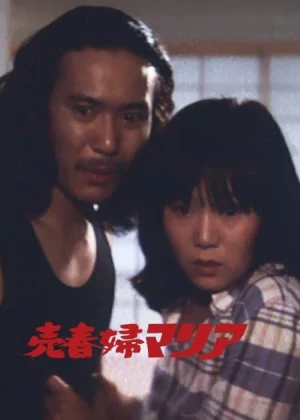
A very mediocre Wakamatsu. The remnants of his 60s work are still clearly visible, but it's like looking at the remains of a burned-down house. Some passing references to his more rebellious work are completely overshadowed by endlessly repetitive sex scenes. I guess the pinku format finally got the better of Wakamatsu.
Read all
The soundtrack is pretty distinctive and the finale, which tilts more towards crime and drama, is a step in the right direction. The first hour or so is pretty mind-numbing though, unless you get excited by uninterrupted moaning. This film felt like Wakamatsu in survival mode, a film unworthy of his status.
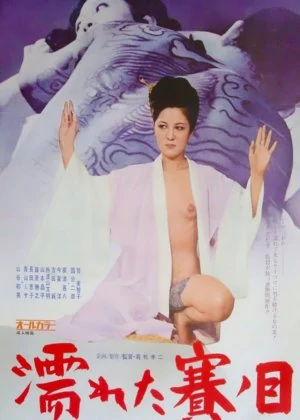
Wakamatsu's films changed a lot during the 70s. His 60s work is overtly experimental and very political, his 70s films are simpler, more typical pinku films mixed with simple genre elements. Wet Dice is a good example. Not a terrible film, but the mix of crime and pinku doesn't make all that much sense.
Read all
Wet Dice is not a bad crime flick, with some proper drama and decent performances. The "wet dice" gimmick is also kinda fun, but the pinku scenes mess up the pacing and are anything but sexy. The film is only 70 minutes long, still it feels like there's too much cruft. Wakamatsu could do so much better.
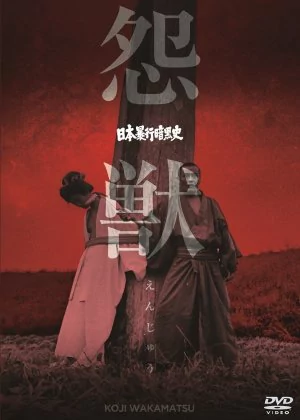
Another entry in Wakamatsu's series on Japanese rapists. It's not the jolliest subject to make films about, but people familiar with Wakamatsu's work know it's a theme that suits him. What doesn't suit him is the classic/historic setting of the story, which takes a lot of vitality away from his films.
Read all
The Hateful Beast revolves around two criminals who lived during the Edo era. They both arrive at a same village, but one proves to be more successful than the other. While he enjoys the spoils of his criminal career, the other one rots away in prison, planning his revenge. It's hardly the most imaginative story, though that matters less, as it's rooted in reality.
The black and white cinematography is nice, but not all that remarkable. The editing and camera work feel a little plain and unimaginative though, especially for a Wakamatsu film. The presentation (including the soundtrack) is just too tame and safe. It's in line with other classic Japanese films, but it takes away from Wakamatsu's unique flavor. Not his best work.
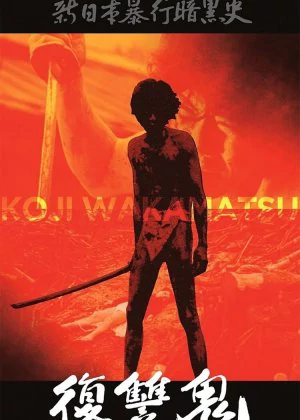
Sex and violence, through the lens of Wakamatsu. The man was incredibly prolific, so it's no surprise not every film was as polished as could be. Vengeance Demon has a pretty basic setup and makes little effort to take it any further. It's a pretty repetitive and crude film that is quite uncomfortable to watch, but never in a way that impresses.
Read all
A brother and sister are banished from their village. They find a house pretty close by, a little too close according to the villagers. To make that clear, they pay the two a visit and rape the sister. The brother is furious and only wants one thing: to take revenge on the villagers for what they did to his sister. A revenge that will be brutal and relentless.
A simple setup, a simple film. A man takes revenge, mostly on people having sex. And this repeats itself until we've reached the 70-minute mark and Wakamatsu can go on to the next one. The violence is crass and the film doesn't pull any punches, but this isn't like Mike's Izo, where there's clear intent and cinematic polish to make things more bearable. Not a great Wakamatsu, but still worth it when you're in the mood for something harsh.
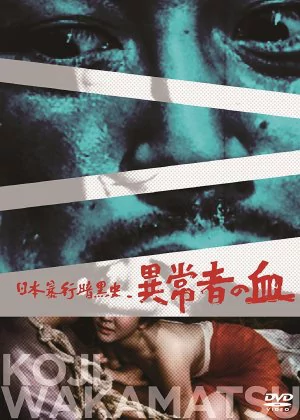
This wasn't Wakamatsu's best. The subject (an exploration of the lineage of a serial rapist) is right up Wakamatsu's alley, but Abnormal Blood goes for a somewhat dramatic and narrative approach. Personally I prefer it when he takes a more experimental route, because that's where Wakamatsu's real strength lies.
Read all
Abnormal Blood is part of a trilogy, of which I haven't seen the other parts. Maybe things feel more like a whole after seeing the remaining entries, but as a stand-alone film it felt a bit aimless and disjointed. It's also quite short considering the scope of the undertaking, at just 75 minutes.
The usual switches between color and black and white are nice enough, Wakamatsu's camera work is interesting and even though it's a more narrative -focused film, the film still feels relatively vibrant and emotional. The ending is pretty cool, but not enough to redeem the entire film. This one is for Wakamatsu completists.
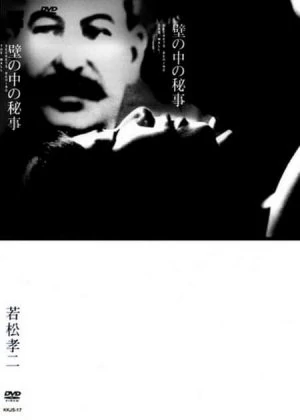
One of the earlier Wakamatsus. It's a fun film for people who want to get a better idea of how his career evolved. It's easy to identify the elements that would grow out to be a part of Wakamatsu's signature, but as a result, you're getting some kind of clear, more watered-down version of what makes his work so interesting.
Read all
As the title suggests, Wakamatsu peers behind the walls of an apartment building. The people living there are struggling, Wakamatsu zooms in on a few of them. A young woman seeks companionship, a young boy wants to experience love for the first time, and a former activist is now benefitting from the Vietnam War.
The black-and-white cinematography isn't quite as impressive yet, the score feels a little too tentative and the first hour is a bit slow. The film gets better as it nears the finale, but it's a case of too little, too late. It's still an interesting watch, more so when you're familiar with Wakamatsu's later work, but it's hardly an essential addition to his oeuvre.
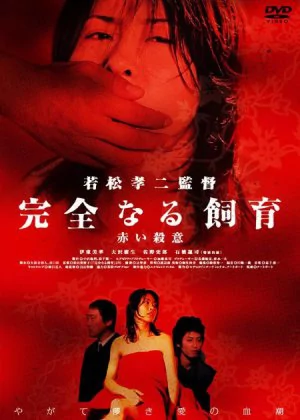
Wakamatsu takes on the sixth film in the rather illustrious Perfect Education series. It's straightforward and generic pinku fare, with some interesting bits at the start and at the end, but also with a whole lot of nothing in the middle. You probably won't even recognize this as a Wakamatsu film.
Read all
Mikio has to get rid of his debt, so he agrees to kill the man of a rich woman. He fumbles the hit and he flees into the mountains. He shacks up in a small cabin but quickly realizes he's not alone in there. There's a girl with him in the cabin, who's been held there since she was very little.
The premise could've been interesting, but it's obvious this film wasn't made with any artistic merit in mind. Wakamatsu's hand is virtually invisible, the performances are weak, the presentation is paltry and the film is pretty long considering its meager plot. Not a good Wakamatsu.
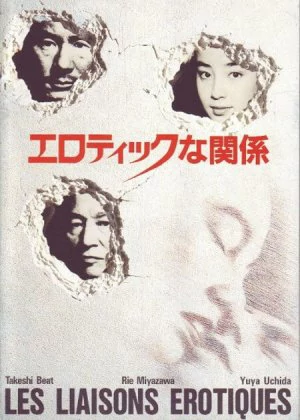
Wakamatsu's 90s cinema is weird. It's an attempt to enter the mainstream, only some topical references seem to link the film to his older work. The result is a downright mess. Wakamatsu throws together a mix of genres, but he doesn't seem to be able to handle any of them particularly well.
Read all
Two private detectives (Rie and Kishin) are working together in Paris. When they're not solving cases, they give guided tours. One day Okuyama, a wealthy Japanese businessman approaches them and wants them to track his French mistress. The mistress ends up seducing Kishin, while Okuyama goes to work on Rie.
The start of the film is an amusing train wreck, especially when Kitano pops up. All the elements were there to make a crazy ex-pat detective flick, but in the end, this turned out to be a pretty straight and dull narrative. Wakamatsu is an interesting director, but only when he sticks to what he knows.
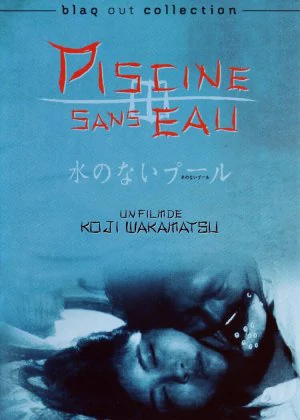
A bit of a disappointment. At least on paper, this sounded like a vintage Wakamatsu. Many of his signature elements are there, but somewhere along the line, he lost his energy. He regained some of that during a late-career comeback, just beware that his 80s and 90s work isn't quite on the same level.
Read all
A married man feels unhappy about his life. When one day he is witness to a rape, he steps in and manages to free the woman, saving her from her assailant. This invigorates him so much that he begins to stalk the woman. His behavior gets increasingly worse until he finally crosses the line and invades her home.
The premise was certainly interesting enough, and things do ramp up towards the finale, but the styling was bland and there was too much focus on the narrative side of things. The runtime's also a bit too long for a rather simple film like this. Not the kind of cinema I want Wakamatsu to make.
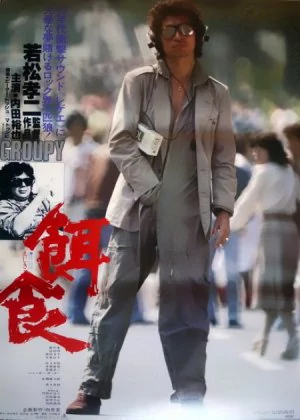
It's no secret Wakamatsu had trouble finding his way once the 60s were over, which led to quite a few subpar films in the coming decades. There were also more than a handful random attempts to steer his career in a different direction, Prey is one of those films. Sadly, it wasn't very successful.
Read all
Performances are mediocre, Wakamatsu's direction feels flat and uninspired, the plot is dull, and the reggae angle comes off as random and tacked on. There's almost nothing left of the spirited, vibrant and creative force that Wakamatsu was just a decade earlier, which makes a film like this all the more painful to watch.
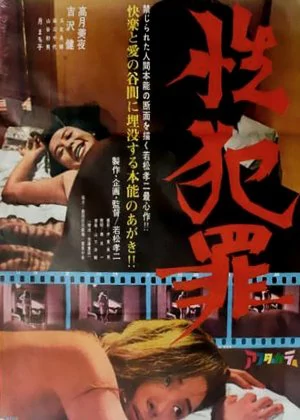
One of the weaker Wakamatsu films I've seen in a while. Not that it is so different from his other work, but somehow it lacks the urgency and the vigor that made his other films jump out. Without it, there's little more than a mix of unsexy erotica and endless monologues, few of them very interesting.
Read all
The performances didn't really appeal to me, the camera work felt a bit obligatory and there were some serious pacing issues. Maybe I'm getting a bit too used to these 60s Wakamatsu films, or maybe this is just a lesser film in his oeuvre. Time will tell I guess, as I still have a good 60 more to go. For now, I would say this is for completists only.
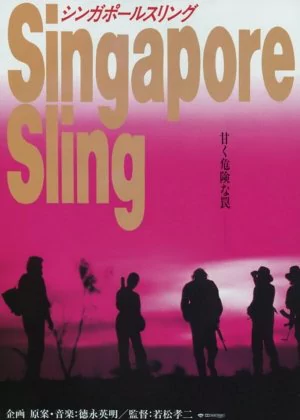
Japanese directors rarely fare well when they venture outside their home turf, the 80s and 90s weren't really Wakamatsu's best eras either. Just to say that expectations were pretty low when I started Singapore Sling. I wasn't really prepared for a film this bad though, it is no doubt one of the worst things I've seen from Wakamatsu up until this point.
Read all
The performances are terrible, the soundtrack is absolutely atrocious, the films looks dirt cheap and the action is bland (though it's still the best part of the film). I'm not quite sure what drove Wakamatsu to make this, it's just a poor mix of crime, thriller and action elements that doesn't even make sense as cheap shelf filler.
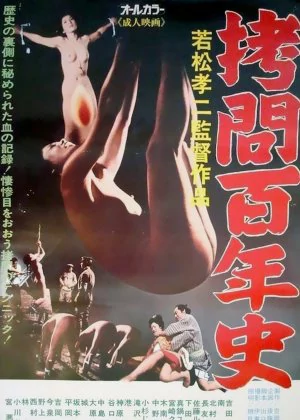
70s Wakamatsu is an entirely different beast from 60s Wakamatsu. He became fascinated with torture throughout the ages and directed some films vaguely relating to this concept. Torture Chronicles is one of them, a disjointed series of torture and rape scenes with little or no connection.
Read all
The presentation is poor, there's little to no connection between the segment and while the torture scenes are pretty vile and unpleasant, they're never quite as uncomfortable to watch as you'd expect them to be. A pretty forgettable Wakamatsu film, I'm not surprised his career took a nosedive during the 70s.
Red Army/PFLP: Declaration of World War
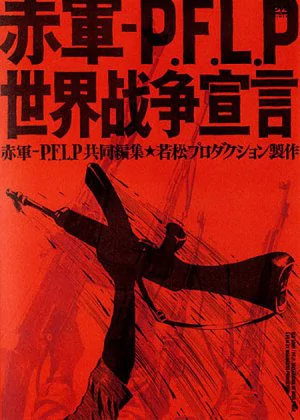
A very political documentary. If you've seen a few of Wakamatsu's films, you know that the man was enthralled by activism and the revolutionaries of the 60s, it's no surprise then that he made several films and documentaries about them. This was more of a visual poem, but a pretty bad one.
Read all
Wakamatsu cycles through images of the time and uses them as a background for endless monologues that circle the concepts of propaganda, activism, and everything related to the zeitgeist of that time. His subjects are the Palestinian freedom fighters, but they are almost an afterthought here.
Halfway through I was pretty much done with this film, so even though it only lasts 70 minutes, it was quite a hassle to get through. There's very little in the way of variation and if you don't care/don't agree with the ideas put forward, then this film can get really under your skin. Wakamatsu's worst.